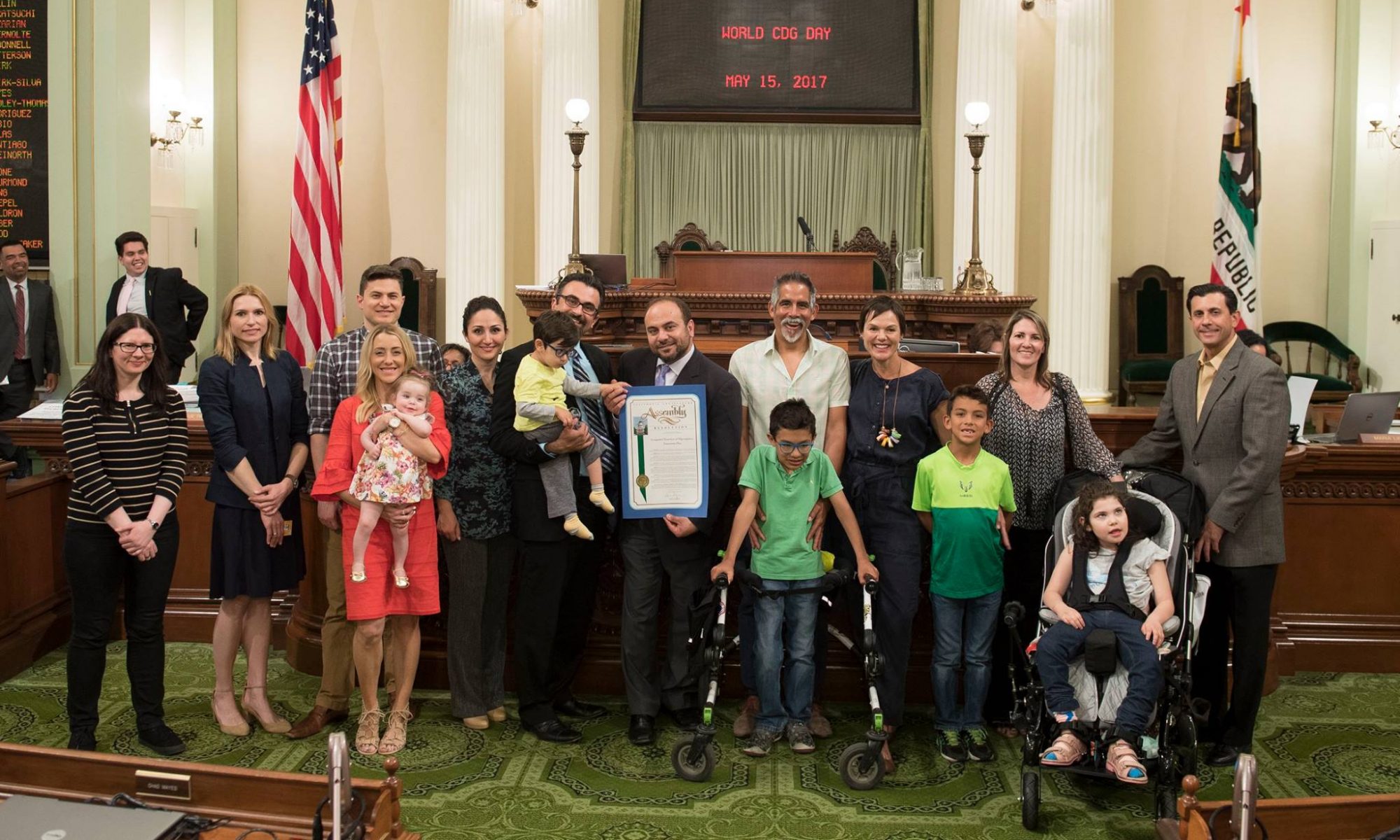24-Week Study to Assess the PD, Safety, Tolerability, and PK of GLM101 in Participants With PMM2-CDG – Glycomine, Inc. Recruiting
This is a Phase 2, randomized, open-label, 24-week treatment study to evaluate the potential pharmacodynamic (PD) activity, safety, tolerability, and pharmacokinetics (PK) of GLM101 in adult, adolescent, and pediatric, patients with a confirmed diagnosis of PMM2-CDG. The planned doses of GLM101 to be investigated are 10, 20 and 30 mg/kg. The study will consist of a Screening Period, a 24-week (6-month) Treatment Period, and a 30-day (1-month) Follow-Up Period.
- Contacts:
- Glycomine 650-264-7560 info@glycomine.com
Clinical and Basic Investigations Into Congenital Disorders of Glycosylation – Mayo Clinic Recruiting
The purpose of this research is to study the natural history of congenital disorders of glycosylation (including PMM2-CDG) and its causes and treatments.
The investigators are conducting a natural history study of patients with congenital disorders of glycosylation (CDG). The study will look into the progression of the disease amongst the participants and also look at the clinical symptoms and how they vary amongst different diseased population groups. The participants will be asked to fill out questionnaires either on their own or with a provider that will grade the severity of disease and document symptoms and diet. Participants will have an opportunity to submit blood, urine, and stool samples that will be tested for biomarkers for CDG.
- Contacts
- Eva Morava-Kozicz, PhD, MD (504) 444-9386 eva.morava@mssm.edu
- Mary Freeman, MS, CGC, B.S. 212-659-1434 mary.freeman@mssm.edu
Clinical and Basic Investigations Into Known and Suspected Congenital Disorders of Glycosylation – National Institutes of Health (NIH) Recruiting
The goal is to learn more about CDGs (including PMM2-CDG).
The clinical manifestations of CDGs are quite variable both within and among different types, and physicians from every specialty will likely encounter patients affected by glycosylation defects. The diagnosis of CDGs should be suspected in cases with neurological signs and symptoms of unknown etiology, or in any patient with multisystemic disease even in the absence of neurological features. Routine admissions of 3-5 days will occur annually or as required by changes in clinical symptomatology.
- Contact
- Lynne A Wolfe, C.R.N.P. (301) 443-8577 lynne.wolfe@nih.gov
Oral Epalrestat Therapy in Pediatric Subjects With PMM2-CDG – Maggie’s Pearl, LLC Active, not recruiting
The objective is to assess the safety, tolerability, and clinical and metabolic improvement of pediatric subjects with PMM2-CDG on oral epalrestat therapy.
This is a prospective, single-center, randomized, double-blind, placebo-controlled study designed to assess the safety, tolerability, and clinical and metabolic improvement of pediatric subjects with PMM2-CDG on oral epalrestat therapy vs. placebo.
Acetazolamide Efficacy in Ataxia in PMM2-CDG – Mayo Clinic TERMINATED
The primary objective is to determine the efficacy of acetazolamide in improving ataxia in patients with PMM2-CDG.
This study is double-blind, placebo-controlled, 1:1 randomized clinical therapeutic trial of acetazolamide for the treatment of ataxia in patients with PMM2-CDG.
Natural History Study Protocol in PMM2-CDG (CDG-Ia) – Glycomine, Inc. Active, not recruiting
This is a natural history (observational) protocol designed to collect clinical and biological information in patients with PMM2-CDG (CDG-Ia).
Subjects enrolled in this natural history study will be thoroughly examined for signs and symptoms of PMM2-CDG. Medical history, physical examination, laboratory testing and imaging studies will be performed during a single consultation. Follow-up will occur every 6 months at a minimum, depending on the standard of care at the investigator’s institution as well as the clinical status of the individual patient. All medical procedures are routine. No new therapy is offered as part of this study, and no change in the patients’ routine therapy is dictated by this protocol. No randomization will be performed.


